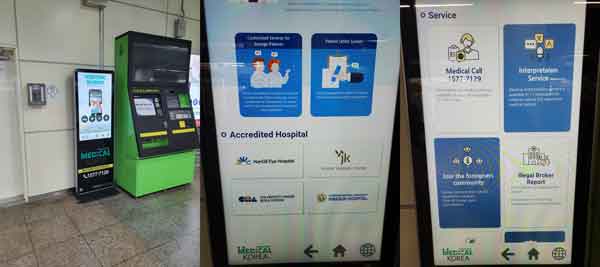It's not easy navigating a foreign city even if the purpose of the visit is for fun such as traveling or sightseeing. The language barrier, cultural difference, native currency, and using public transportation can all be intimidating to even a person with an outgoing character.
Seoul is not an accessible city, either for foreigners to navigate. The capital city is home to about 10 million people, almost one-fifth of Korea’s population, and its subway has 18 lines crisscrossing this metropolis.
It is a small surprise then to see a foreigner standing in one of the subway stations looking lost. This writer encounters at least one foreigner lost in the subway monthly. As a Korean who has spent most of my life abroad, it's easy to understand what the foreigners are going through. I, too, felt so lost when I visited big cities like New York, Chicago, and Boston while studying in the United States.
Yes, smartphones have made steering unfamiliar cities easier and more comfortable, as the magical device provides its users with an abundant amount of information.
What if, however, you have come to Korea for a specific purpose – like the treatment of a disease? Or you are visiting this country for a tour but get sick all of a heap. It must not be easy for you to obtain relevant information regarding hospitals and clinics that you want to visit, online and offline. If you are under pain or other inconvenience, getting around the city like tourists will become all the more difficult.
It is these situations the local healthcare authorities had in mind when they decided to set up medical information kiosks at places frequented by foreigners. The Korea Health Industry Development Institute (KHIDI) and the Ministry of Health and Welfare installed such kiosks at five subway stations in Seoul to provide information on Korean medical services to foreigners on Dec. 10.
The five subway stations are Myeongdong, Gwanghwamun, Apgujeong, Sinsa, and Gimpo International Airport. They also set up two Medical Korea Support Centers in Myeongdong and Incheon International Airport.
Over the weekend, this reporter visited the kiosk in Gwanghwamun station to see if and how it is helpful for foreigners.

Contrary to my expectation, the kiosk in Gwanghwamun Station was reasonably easy to locate. It stood right in front of the turnstile and was noticeable from a distance. When I went to use the device, it gave me a variety of criteria I could select from, including interpretation service, illegal broker report, and Korean Accreditation Program for Hospitals Serving Foreign Patients (KAHF) certified hospitals.
It provided the information in four languages – English, Chinese, Japanese, and Russian – and was pretty straightforward with no difficulty in choosing the information I needed. The kiosk also provided detailed information, such as famous hospitals for specific surgeries and their locations. It operated pretty quickly with little to no waiting time.
There was a small problem, though. It might have been the cold weather or my clumsy fingers, but I had a hard time pressing the icons on the kiosk. I had to press multiple times on an icon to go to the page I needed.
Also, while the kiosk is located at major subway stations in Seoul, I would recommend the institute and ministry to expand the service to provincial areas that also attract many foreigners, such as Busan and Jeonju.
Of course, Seoul is the number one city in Korea, but interest in other areas has increased over the past decade. Besides, as some of the KAHF certified hospitals are located in the suburbs, it would be more helpful to foreign patients if the kiosks were available in such locations.
Overall, the kiosk was quite informative, and it can be of much help to foreign patients or foreigners in general who are looking for medical services in Korea.

